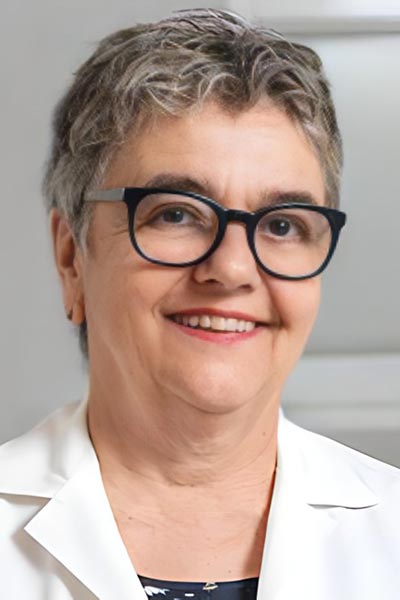Despite an increase in the available therapeutics for patients living with rheumatoid arthritis (RA), predicting which drug will be best for each patient remains a challenge. However, oncology has created a roadmap to precision medicine through the molecular profiling of tumors that investigators hope to apply to rheumatology.

“The confluence of synovial biopsy accessibility with the explosion of knowledge about the characteristics of the synovium driven by cutting-edge immunologic and molecular analytics has created an incredible opportunity for the rheumatology community,” said Susan Goodman, MD.
Dr. Goodman will serve as co-moderator on Monday, Nov. 13, during Precision Clinical Trial Design in Rheumatoid Arthritis. In the session, Costantino Pitzalis, MD, PhD, FRCP, will address current understanding of patient-centered therapy in rheumatology and future research directions for precision approaches to treatment. The session will begin at 2 p.m. PT in Room 6A–B of the San Diego Convention Center and will be livestreamed and available on demand within 24 hours for registered ACR Convergence 2023 participants.
“Dr. Pitzalis is a leader in precision medicine and the use of synovial tissue to unravel the secrets of rheumatoid arthritis,” said session co-moderator Diane Horowitz, MD, Associate Professor, Hofstra Northwell School of Medicine. “This is going to be an interesting and informative session.”

Because patients with cancer undergo biopsies, the clinicians involved in their treatment have access to genetic analysis of the tumor biopsy to facilitate a targeted approach.
“By no longer simply lumping all lung cancers or all breast cancers together, but choosing treatment with precision, response to therapy and survival have improved,” said Dr. Goodman, Professor of Clinical Medicine at Weill Cornell Medicine, Director of the Integrative Rheumatology and Orthopedics Center of Excellence, Medical Chief and Research Director for the Combined Arthritis Program, and Attending Physician at the Hospital for Special Surgery. “In rheumatology, we are currently prescribing highly targeted therapies without the advantage of molecular profiling that could be obtained through synovial biopsies. Our speaker in the session, Dr. Pitzalis, has been at the forefront of the developments in our field that aim to apply the same precision to rheumatology.”
Dr. Pitzalis is the Versus Arthritis Professor of Rheumatology at the William Harvey Research Institute, Barts and The London School of Medicine and Dentistry, Queen Mary University of London, United Kingdom.
As Deputy Director of the William Harvey Research Institute and Head of the Centre for Experimental Medicine and Rheumatology, Dr. Pitzalis leads a team of approximately 50 researchers, including clinicians and scientists. His research focuses on the cellular and molecular mechanisms of inflammation and autoimmunity in chronic rheumatic conditions, particularly RA.
“There has been an explosion in our understanding of the different cells and cell interactions in the synovium that produce the highly heterogeneous disease that we all recognize as rheumatoid arthritis,” Dr. Goodman said. “We know, for instance, that up to 40% of patients will not respond to individual agents, and overall, about 20% of patients are refractory to all therapies tried. Adding complexity to our situation in rheumatology, there may be plasticity in the cell populations in the synovium, suggesting that a given treatment might be effective at certain points during a patient’s disease but not others.”
In a trial led by Dr. Pitzalis, patients with an inadequate response to tumor necrosis factor (TNF) inhibitors were stratified by B cell gene signatures and randomized to receive either anti-B cell therapy (rituximab) or Il-6 blockade (tocilizumab). The patients with low B cell signatures were significantly less likely to respond to B cell therapy, a finding that seems unsurprising now, but was revolutionary at the time, Dr. Goodman said.
“With the increased availability of synovial biopsy-driven studies, rheumatologists should anticipate an approach to clinical treatment decisions that will include molecular analytics of synovium,” Dr. Goodman said. “The evolution of a personalized approach in rheumatology should improve treatment response as it has in oncology.”

Registered ACR Convergence 2024 Participants:
Watch the Replay
Select ACR Convergence 2024 scientific sessions are available to registered participants for on-demand viewing through October 10, 2025. Log in to the meeting website to continue your ACR Convergence experience.
